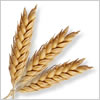
 Czech Republic: Poor barley harvests threaten beer quality
Czech Republic: Poor barley harvests threaten beer quality
Home grown barley that’s a key ingredient in Czech beer is a delicate, fickle crop, and has suffered through tough growing seasons in recent years, Prague Post reported April 11.
Czech beer is widely renowned as being among the world’s best, and natives would certainly agree. Common estimates cite Czechs as the globe’s heaviest beer drinkers, tipping back some 160 liters (336 pints) per person each year. Increasingly unreliable barley harvests have left Czech brewers with two choices: import barley and raise beer prices, as Pilsner Urquell manufacturer Plzeňský Prazdroj did last year, or lower their standards and make beer from lower-quality barley.At two research centers in Moravia, scientists have been quietly working to find ways to reduce risk of a bad harvest.
At the Agricultural Research Institute in Kroměříž, south Moravia, researchers are experimenting with growing a strain of “naked,” or hull-less, barley, which could create a hardier crop that also produces higher yields for use in malting and making beer. Such strains have been grown for years in North America, mostly for feeding livestock, but have not been sufficiently tested in Czech soil and climates. And, at the Research Institute of Brewing and Malting in Brno, researchers have been working at manipulating varieties of sweet pea, chickpea and cowpea plants that could replace barley as the malting grain in beer. Both projects are funded by state research grants.
A risky crop The initiatives are now more needed than ever. Last year’s Czech barley harvest was a “catastrophe,” Josef Prokeš, manager of the Brno research agency, told the Czech biotechnology in late March. He blames barley troubles on weather fluctuations caused by climate change. “As far as the quality of the barley goes, it was the worst in the last 50 years,” Prokeš said. “If the changes in climate and weather fluctuations continue, barley will become an increasingly risky crop.”
Agriculture Ministry spokeswoman Táňa Králová agrees. “2006 was the worst in the past few years in terms of quality,” she said. A long, cold winter delayed planting. Then a summer of climate extremes sent the delicate barley into shock: a record-breaking heat wave in July and a cold and wet August.Though the expected yield is more than 4.04 metric tons per hectare (4.4 short tons per 2.5 acres) of sowed barley, in three of the past five years, the actual harvest hovered between 3.5 and 3.9 tons per hectare, Králová said. The poor harvest means the price for malting barley — the most expensive type, necessary for making beer — jumped from 3,241 Kč per metric ton in 2005 to 3,713 Kč ($178) in 2007, according to the Czech Statistical Institute.“The situation of beer makers is very bad now,” Králová said.From barley to beerThe basic formula for your favorite beer involves four ingredients: a malted grain, hops to add bitterness and flavor, yeast to ferment the brew, and water.
Though beer can also be produced using a variety of grains besides barley — corn, wheat and oats are common in various parts of the world — the majority of Czech and Central European beers are based exclusively on malted barley. Malting involves wetting the grain, allowing it to germinate and then carefully roasting it. The process develops the enzymes in the grain that break down its starches into sugars during beer making. So far, the experiments in Kroměříž and Brno have yielded mixed results for helping brewers.Initial tests on the hull-less barley in Kroměříž have shown it to be better for the food industry and for making whiskey than for beer.
“We would love to aid the Czech beer industry, but naked barley has some characteristics which are not good for beer making,” said Kateřina Vaculová, one of the project’s researchers. In particular, the strain has the undesirable side effect of creating a foggy, cloudy beer, she said. Brno Research Institute director Karel Kosař says it’s unlikely that Czech beer will be brewed from pea plants anytime soon. For now, “We are trying to develop a beer with healthy benefits,” he said. Prokeš is more open to the possibility. “But we should never say never – surprises may happen. If our climate should change significantly in the next 10 to 15 years, we should be ready.”Hela Balínová contributed to this report.
后退
E-malt.com, the global information source for the brewing and malting industry professionals. The bi-weekly E-malt.com Newsletters feature latest industry news, statistics in graphs and tables, world barley and malt prices, and other relevant information. Click here to get full access to E-malt.com. If you are a Castle Malting client, you can get free access to E-malt.com website and publications. Contact us for more information at marketing@castlemalting.com .





